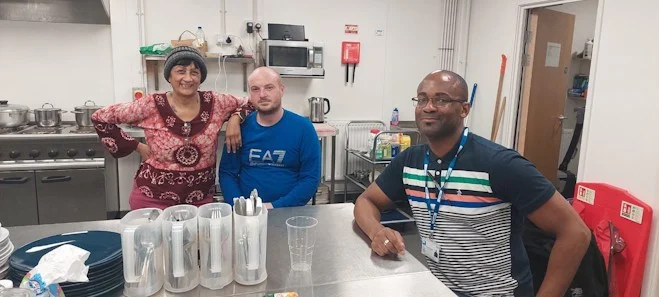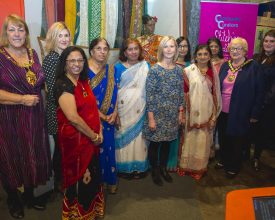A social worker, who specialises in helping rough sleepers and beggars on the streets of Leicester, has been shortlisted for a major national award.
Bhavna Mayer, who works for Leicester City Council’s adult social care service, is responsible for helping people who are entrenched in street lifestyles and who don’t engage with existing services.

Since taking up the role in 2018, she has been able to build positive relationships with people whose often unstable, chaotic lifestyles mean they need help with everyday matters such as budgeting or shopping, through to more complex issues such as staying safe from violence, abuse or exploitation.
As a result of her efforts, which often involve her sitting out on the streets with some of the city’s most vulnerable people, Ms Mayer has been shortlisted for the Social Worker of the Year award, the winner of which is due to be announced at an event in London on November 4.
Speaking about Bhavna’s nomination, Councillor Sarah Russell, Leicester deputy city mayor for social care and anti-poverty, said: “Bhavna’s role has been unique in its approach to dealing with people who are some of the most difficult to engage with in the city.
“This innovative, personal and direct approach has won her the respect and recognition within the street lifestyle community, as well as among her colleagues.
“Her one-to-one grass roots support has helped people move into accommodation, to claim benefits and even move away from a street lifestyle and begging, and by making that help directly available to people, there are no appointments or offices which might put people off from seeking assistance.”
By drawing up money management plans, Bhavna has supported people to collect any money to which they are entitled and to do their shopping and pay bills regularly – an approach which has led to a decrease in the amount of financial extortion and even enabled some people to save some money for the first time in their lives.
The approach has also helped people to do simple things like saving money to buy a train ticket to visit family, buy a relative a Christmas present or save for household items.
“There is no quick fix when you work with someone who has been disadvantaged and has trust issues,” said Bhavna of her dedicated role.
“It takes such a long time to build a rapport and I find that when quality of life has improved for individuals, my role is well worth it.”






